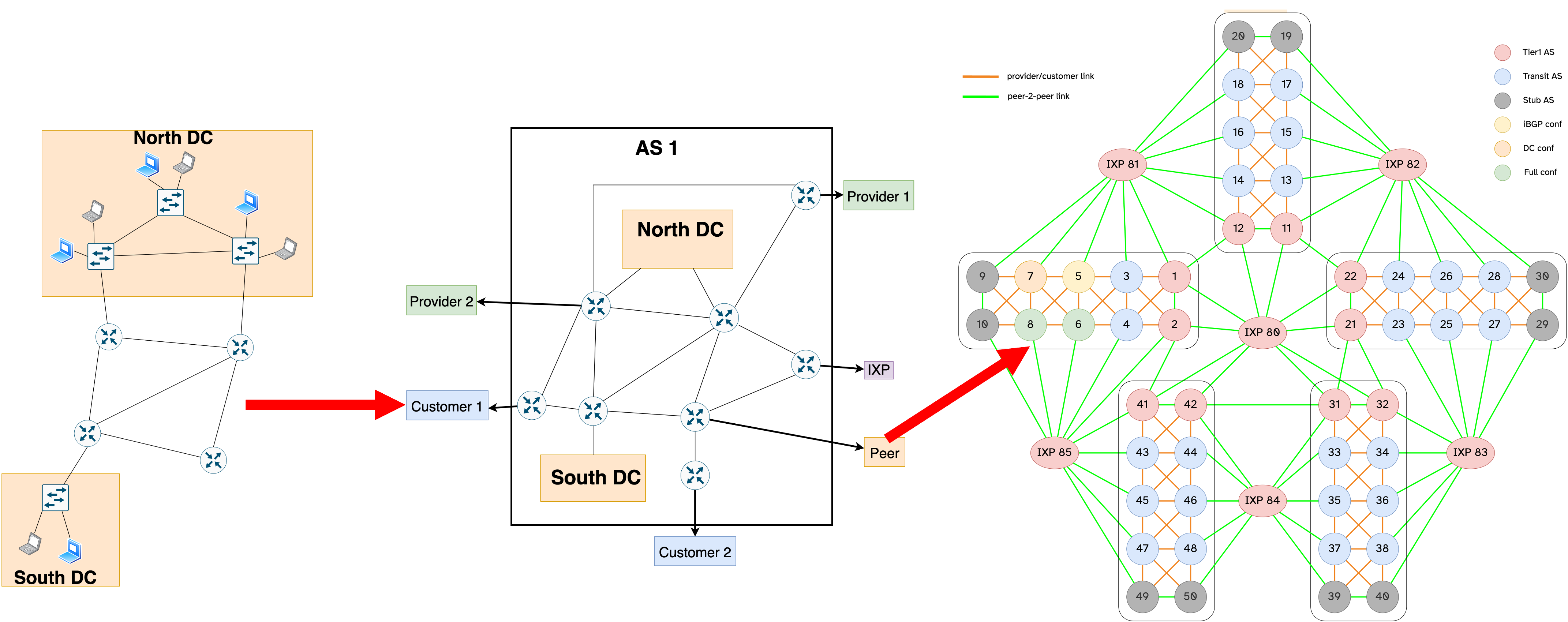Member: Christoff Visser
Category: Underpinning
Tags: network education, teaching, education platform, testbed, network simulation
- Background: As the Internet keeps growing, the need for new network engineers and operators is increasing. However, the cost of network education is often high, and access to hands-on experience is limited.
- Purpose: Develop an open-source network education platform that provides students with hands-on experience in network design, configuration, and troubleshooting.
- Approach:
- Collaborate: work with network trainers and NOGs to provide education opportunities to students.
- Develop: create a network education platform that allows students to design, configure, and troubleshoot networks in a virtual environment.
- Design: design content to cover a wide range of networking topics, from basic concepts to advanced protocols.
Teaching with the mini-Internet project
The mini-Internet project is an open-source network education platform that provides students with hands-on experience in configuring, troubleshooting, and running a network. The platform is designed to simulate a small-scale Internet network, allowing students to experiment with different network configurations and protocols.
Our approach is to collaborate with network trainers and Network Operator Groups (NOGs) to provide training and education opportunities to students. Through these collaborations we aim to utilise and improve the mini-Internet project to allow for a wide variety of courses and education programs.


